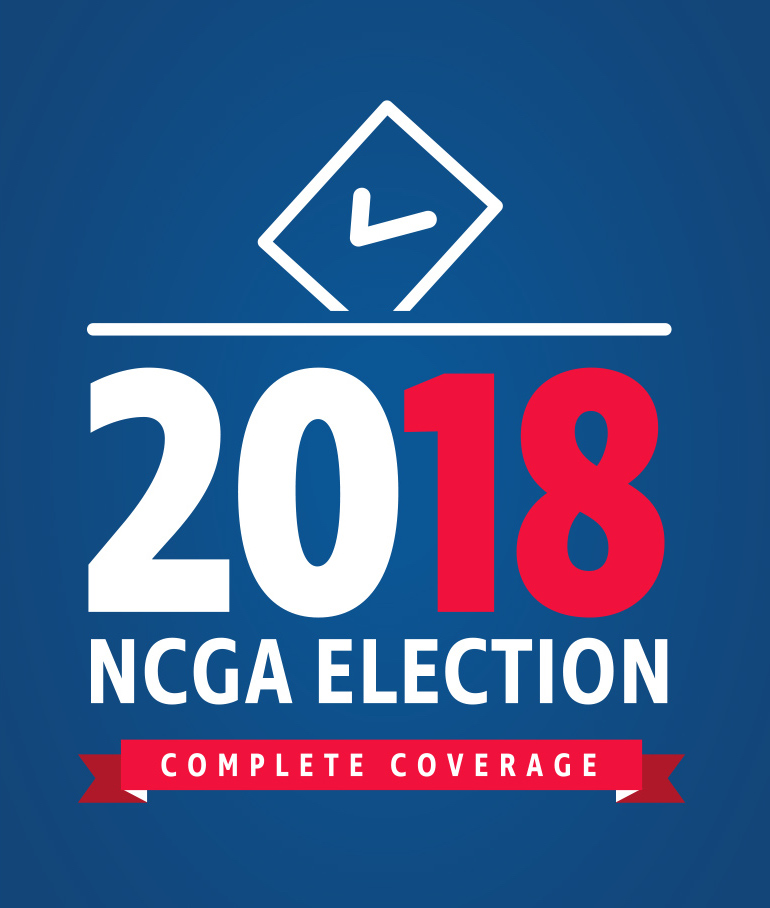 House District 46 (Robeson and Columbus counties.)
House District 46 (Robeson and Columbus counties.)
• Brenden Jones, Republican. (first-term incumbent). Occupation: Small business owner. Education: Fayetteville Technical Community College, mortuary science associate’s degree. Career highlights: Serves as House majority freshman whip. Former Columbus County Board of Elections chairman. Southeastern Community College Board of Trustees member. Member of Tabor City Committee of 100, and Columbus County Jobs Foundation. Former Columbus County Board of Elections chairman.
• Barbara Yates-Lockamy, Democrat. Occupation: Retired school administrator. Education: Southeastern Community College, associate degree. N.C. A&T University, business education degree. University of South Carolina, master’s in education degree. Career highlights: Serves as Columbus County Board of Education chairwoman. On the N.C. Caucus of Black School Board Members, and the N.C. School Boards Association.
The devastation of two hurricanes in two years has very much been in the news in North Carolina. In House District 46, which lies near the coast, it’s the dominant issue, with both candidates stressing the impact devastating storms have had on the mostly rural area.
The race features first-term Republican incumbent Brenden Jones of Tabor City seeking re-election against Democratic challenger Barbara Yates-Lockamy of Whiteville.
The N.C. FreeEnterprise Foundation, which closely tracks state elections and voter behavior patterns, rates the district as “competitive,” with neither party having an inherent advantage.
The district still hugs South Carolina, but boundaries have changed since Jones was elected. It no longer incorporates any of Bladen County. It still includes eastern Robeson County, but Lumberton was drawn out, and half of Columbus County was moved into District 16.
The District 46 map was altered by the General Assembly to accommodate adjustments to other districts that a federal court ruled had to be redrawn because they unconstitutionally relied too heavily on race during previous redistricting.
“The prevailing issue, and our most unfortunate reality is that people are doubly suffering due to Hurricane Matthew, with no recovery, and recently Hurricane Florence leaving families in shambles,” Yates-Lockamy said. “For a rural area that is already heavily in poverty, this was a total devastation.”
The candidates differ on who in state government to hold responsible for the slow recovery from Hurricane Matthew, which struck in 2016.
Jones is vice-chairman of the House Select Committee on Disaster Relief, and an advisory member of an investigative subcommittee created to look into the slow pace of Hurricane Matthew recovery funding under Gov. Roy Cooper. He did not respond to repeated requests from Carolina Journal for an interview.
He has been highly critical of Cooper’s handling of hurricane recovery on his Twitter feed. For example, on July 23 he tweeted: “It’s been nearly 2 years since Hurricane Matthew and Gov. Cooper has yet to deliver on his promise to allocate millions of dollars in relief. Enough is enough.”
“It is simply unacceptable and misleading to blame lack of recovery on the governor alone, when the majority party has a supermajority that has control over appropriations,” Yates-Lockamy said.
The candidates also differ on six proposed constitutional amendments on the ballot. They are the right to hunt and fish, Marsy’s Law crime victims’ bill of rights, creating a Bipartisan State Board of Ethics and Election Enforcement, selecting judges for judicial vacancies through a nonpartisan, merit-based system, capping the income tax rate at 7 percent, and requiring photo identification to vote.
Yates-Lockamy opposes all six.
“The six constitutional amendments are all attempts to place slave-like controls on the basic freedoms that make America the nation it is,” she said.
“Please vote no to all six on the premise that no major efforts were created to provide residents with an understanding and education on permanent laws that will affect us for the rest of our lives.”
Jones voted in the General Assembly to approve placing all six amendments on the ballot. In June he posted on Facebook his support for the wildlife harvesting amendment.
“Tonight I voted to protect our right to hunt and fish,” the post stated. “Please understand, there are folks that want to strip you of these rights. This is why November is so critical. When we begin giving up rights, there will be no stopping. I promise to continue to protect our freedoms.”
Yates-Lockamy supports raising the minimum wage, expanding Medicaid, raising teacher pay to the national average, and restoring the Earned Income Tax Credit.
Jones has supported keeping taxes low, reining in government spending, stimulating private-sector job growth, and fighting for rural transportation.